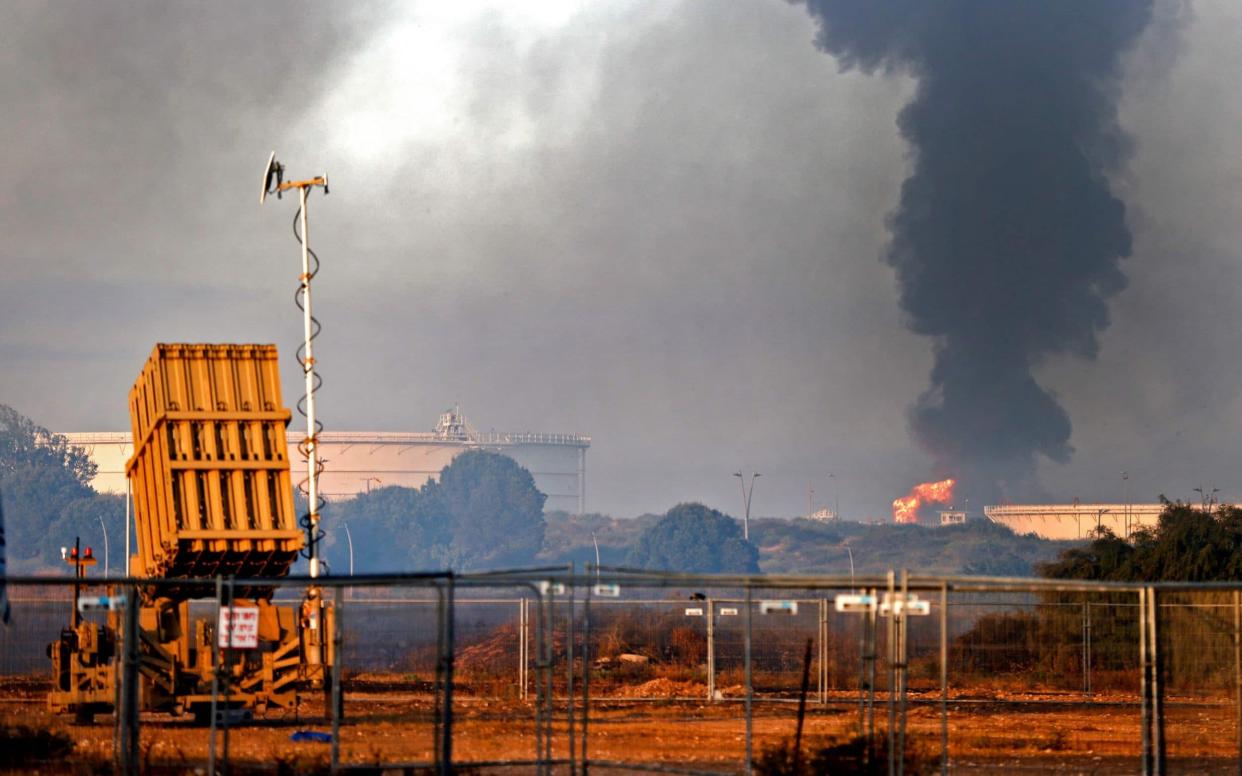Can Joe Biden afford to stay out of the Israeli-Palestinian conflict?

President Joe Biden entered the White House with a “stand back” approach to the Israeli-Palestinian conflict.
Many of his predecessors made big promises on solving the longest and most intractable conflict, but invariably came up short.
Much of the president’s first few months has been spent tackling the US’s more pressing domestic problems. Inheriting a once-in-a-generation global pandemic, a tanking economy and catastrophic unemployment, has left him time for little else.
Meanwhile, Mr Biden, much like Donald Trump before him, has tried desperately to extricate America from Middle East wars - withdrawing troops from Iraq and Afghanistan and taking a backseat in Syria.
The inertia was not so much of an issue when the region was quiet.
But with the violence in Israel and the occupied Gaza Strip threatening to escalate into a major all-out conflict, can Mr Biden afford to keep looking away?

His colleagues in the Democratic Party don’t think so.
In public, they have implored their president in tweets to do something. “President Biden needs to step in and deescalate to stop the carnage,” tweeted Representative Ilhan Omar on Wednesday. “Palestinian children deserve advocates for their humanity, safety and security.”
In private, they have urged him to exert more pressure on Israel’s government over settlement activity they believe are making the prospects for an agreement with the Palestinians virtually impossible.
Martin Indyk, a former US ambassador to Israel and a former special envoy for Israeli-Palestinian negotiations, does not blame the president’s approach of “conflict management, rather than conflict resolution”, but believes it was time for him to step into the fray before things spiral out of the US”s control.
“They need to establish a dialogue with the Palestinians,” Mr Indyk told the New York Times, noting Mr Biden was yet to talk directly to Mahmoud Abbas, the president of the Palestinian Authority. The president has not even yet nominated an ambassador to Israel.
On Wednesday, Mr Biden finally broke his silence to say Israel had the right to defend itself against “thousands of rockets” flying into its territory.
And while he called for calm from both sides, he notably said nothing of Israel’s targeting of residential buildings in the occupied Gaza Strip, or of the more than 200 Palestinians killed.
The US has a long and historic ties with Israel, that until recently have been largely bipartisan. However, the Democratic Party has moved to the Left in recent years - partly as a result of Donald Trump’s closeness to Israeli premier Benjamin Netanyahu.
Mr Biden criticised Mr Trump, who helped establish relations between Tel Aviv and a number of Gulf Arab states through the Abraham Accords. And since taking office he has reversed some of his more radical policy decisions, including restoring US funding for Palestinians and resuming diplomatic contacts with Palestinian officials.
But in truth, Mr Biden has few of his own ideas and is currently treading a well-worn path- one we know from experience leads nowhere.
But the situation urgently needs mediation from a powerful ally. Neither side currently appears prepared to back down and they will need persuading.

 Yahoo News
Yahoo News 
